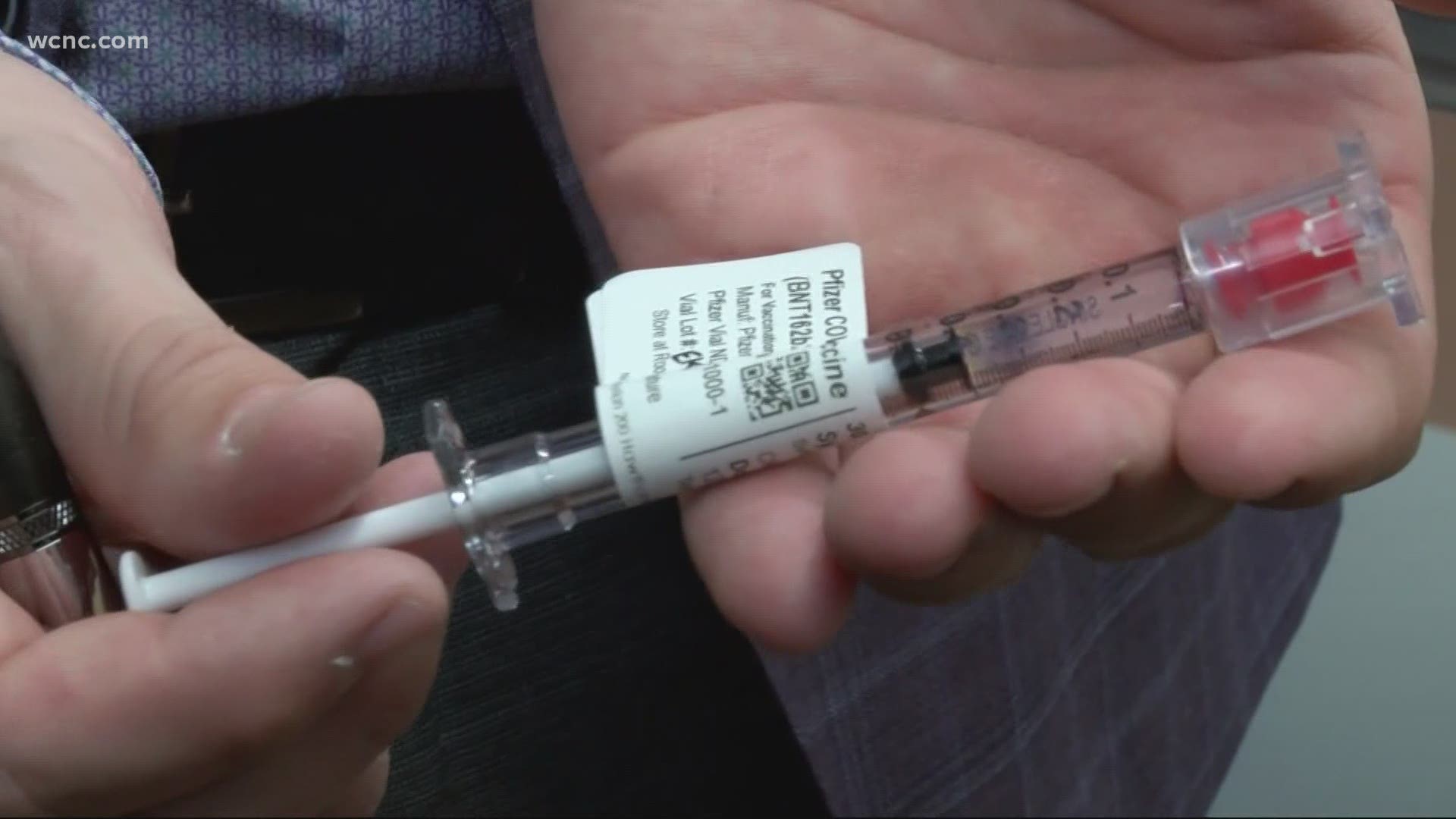CHARLOTTE, N.C. — North Carolina vaccine data shows there are major racial disparities with the first doses of the COVID 19 vaccines.
New state data shows only eight percent of the doses have gone to African Americans in North Carolina, even though they represent 22% of the state. There’s a similar trend among other minority groups, like Hispanics.
Many of those first shipments were limited to healthcare workers, and not the general population yet. Since the vaccines were initially only available to a limited group of people in the first couple of weeks, including many frontline healthcare workers, the data does not necessarily reflect the African American population as a whole.
However, Dr. Karla Robinson said there are disparities with African Americans in the medical field too.
“We [African Americans] are the ones that are most severely affected,” said Dr. Karla Robinson, a physician at Urban Housecall. “There is a huge disparity as it relates [to] African American healthcare workers and so I think that may be certainly something we are seeing here.”
Dr. Robinson also said there are historical reasons black people mistrust the medical community, including the Tuskegee Experiment, in which black men were unknowingly infected with syphilis so scientists could study the disease.
“I have spoken with other people of color who are part of the healthcare community and some of them have said, ‘Uh, I’m not so sure. I don’t know if I trust it [the vaccine,]” said Dr. Robinson.
The data shows a similar trend among Hispanic people who only received about four percent of the vaccinations in North Carolina. However, white people received 80% of the vaccines, which is a larger number than their percentage of the state’s population at 70%. Asian people also received a higher rate of vaccinations at 7% compared to their percentage of the state’s population, which is 3%.
“The medical community has to do a better job of really trying to be intentional about educating communities of color,” said Dr. Robinson.
Dr. Robinson encourages people to do their own research about COVID-19 vaccines as well.
“There’s certainly nothing wrong with questioning, but in that questioning I think do the research, trust the science,” said Dr. Robinson.
South Carolina health officials say starting next week they plan to launch a public dashboard with vaccination rate information.

